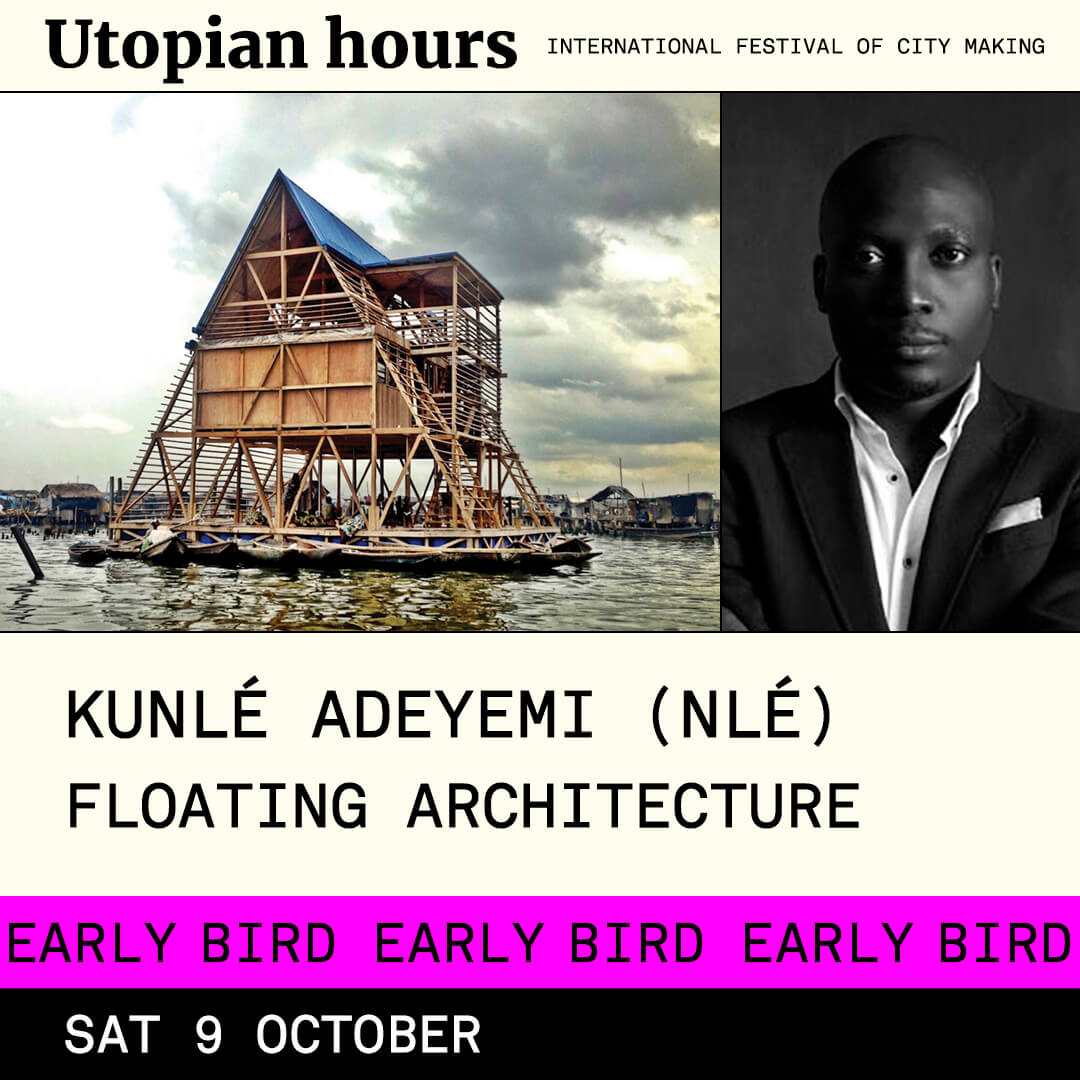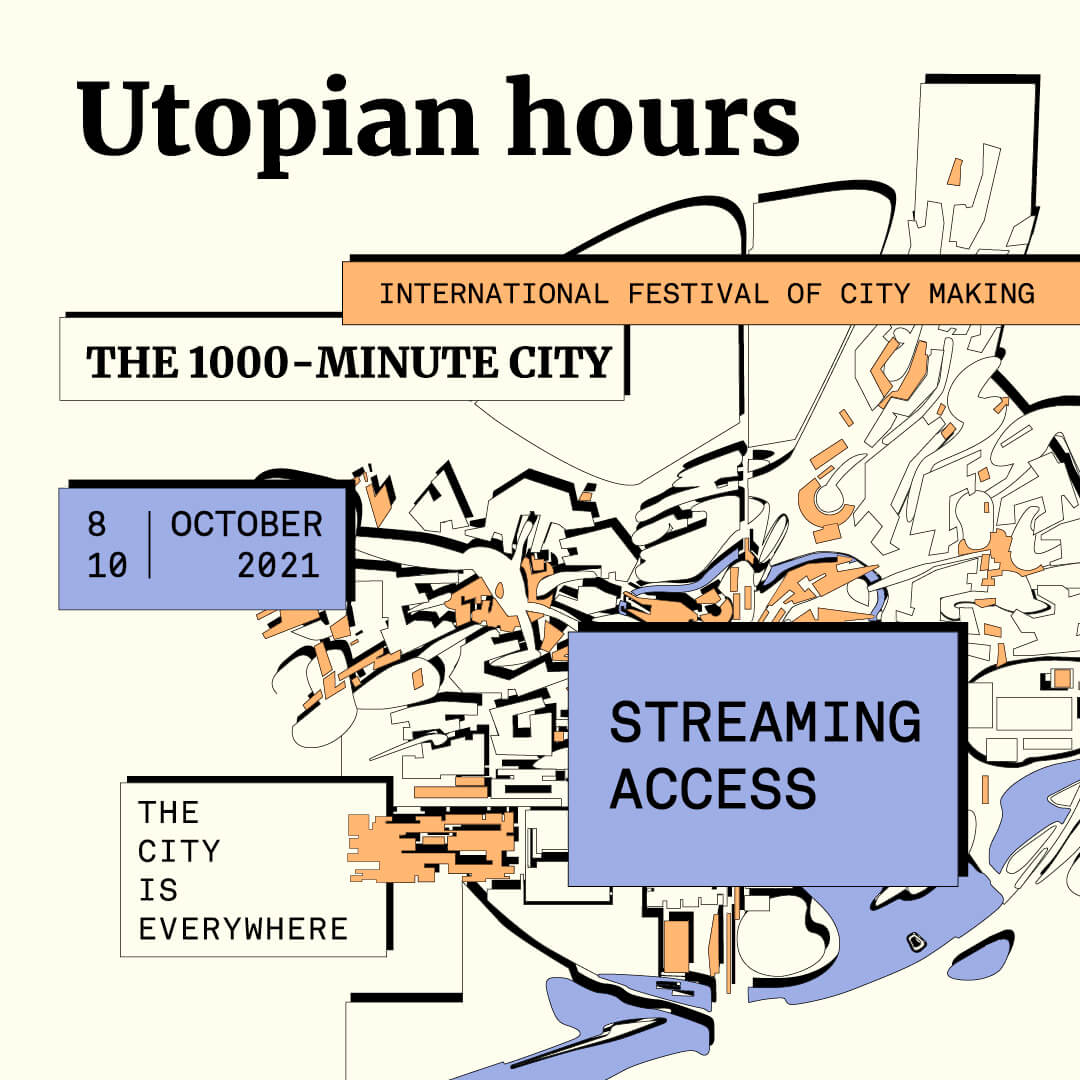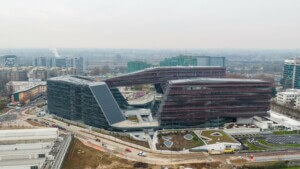Utopian Hours is coming back for its fifth edition on October 8 through 10. Put on by city-imagining project Torino Stratosferica, it has been around since 2017 and is Italy’s only international city-making festival. Hosted at the Lavazza events space Centrale, a former power plant in Torino, this year’s edition moves on from the preoccupation of the pandemic, which was the key theme of the 2020 festival, and will focus instead on positive visions for the future of cities.
Titled The 1,000-Minute City—a play on the New Urbanist notion of the 15-minute city (where residents can reach all their necessities within a 15-minute walk or bike ride)—the festival will begin by shifting its conception of “the city” from a bounded territory of land to the state of being a citizen. This focus on people rather than places expands the horizons of what we might call the city. By way of this change in perspective, the festival hopes to show that cities, after suffering a blow during the pandemic, can once again become the center of progress… though one wonders if they ever lost that status.
As in past years, Utopian Hours has assembled a group of city planners, activists, architects, and other innovators to share their knowledge and experience in a series of symposia. For those who can’t make the trip to Italy, like last year, the festival will also be available to stream online.
Following is a list of this edition’s headliners:
- Robert Hammond, co-founder, with Joshua David, of Friends of the High Line, the grassroots organization that transformed an abandoned elevated railroad into a global icon of adaptive reuse and urban placemaking.
- Kunlé Adeyemi, founder of NLÉ, an architecture, design, and urbanism practice that has produced such notable works as the Makoko Floating School, a prototype floating structure once located in a lagoon in central Lagos and now deployed in five countries across three continents.

- Soraya Axelsson, head of the City of Helsingborg, Sweden’s H22 initiative, a forthcoming expo sponsored by IKEA aimed at developing future welfare solutions that will improve quality of life through a smarter, more sustainable city.
- Michael Grove, the chair of landscape architecture, civil engineering, and ecology at global design firm Sasaki and leader of much of the firm’s work designing cities in Asia.
- Peter Vesterbacka, the Finnish game developer responsible for Angry Birds, whose latest endeavor, Finest Bay Area, is a plan to join Helsinki and Tallinn into one urban area by way of a tunnel under the Gulf of Finland.
- Mariana Valverde, a Canadian sociologist, professor at the University of Toronto, and author of the pamphlet Seeing Like a City, whose work focuses on infrastructures as combinations of state, companies, and individuals.
- Carlo Stanga, a Berlin-based Italian illustrator whose books, including I Am The City, which tells the stories of Milan, London, and New York and depicts the world’s most famous architecture and cities.
- Brion Oaks, Austin, Texas’s first chief equity officer, a role that is becoming increasingly popular and influential in cities across the United States, which focuses on bridging the often yawning gap between governments and the communities they serve.












